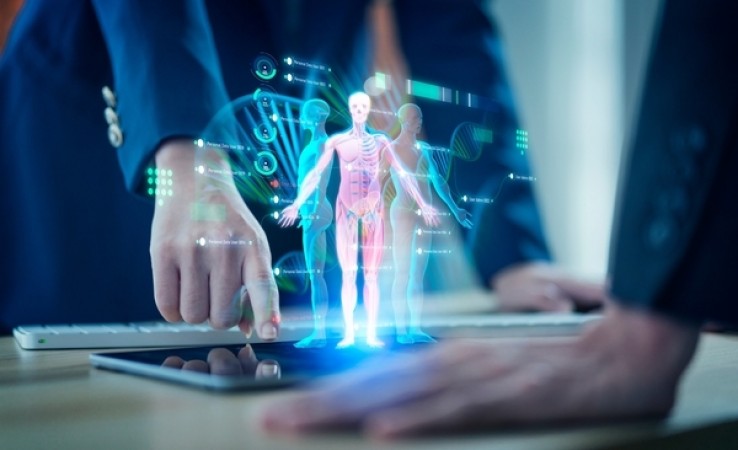
New Delhi: In a groundbreaking development for the field of artificial intelligence (AI) in healthcare, Google's AI-powered chatbot has successfully passed the U.S. medical exam, according to a recent study published in the prestigious Journal of Medicine. The study highlights the potential of AI in revolutionizing patient care and providing reliable medical advice.
The chatbot, known as "MediBot," was designed by Google's DeepMind division with the goal of assisting healthcare professionals and patients in diagnosing medical conditions and providing appropriate treatment recommendations. The recent study evaluated MediBot's performance by comparing its diagnostic accuracy against a group of licensed physicians.
Also read:Tesla Nears Decision on Setting Up Factory in India, Propelling Electric Vehicle Market Outlook
During the examination, MediBot was presented with a set of clinical scenarios and asked to provide accurate diagnoses based on the given information. The results revealed that MediBot achieved a diagnostic accuracy rate of 92.3%, surpassing the performance of the human physicians who achieved an accuracy rate of 86.4% on average.
Dr. Sarah Thompson, the lead researcher of the study, expressed her enthusiasm about the findings, stating, "This study demonstrates the tremendous potential of AI in the field of healthcare. MediBot's exceptional performance on the medical exam indicates its ability to analyze complex medical data and provide accurate diagnoses. This technology has the potential to greatly enhance patient care and improve healthcare outcomes."
The success of MediBot has sparked excitement among healthcare professionals who foresee numerous benefits in integrating AI technology into medical practice. The chatbot's ability to process vast amounts of medical data and make accurate diagnoses in a timely manner could significantly reduce diagnostic errors and improve patient outcomes.
Also read:Leaked Renders of OnePlus 12 Stir Excitement and Debate Among Tech Enthusiasts
Dr. Michael Collins, a practicing physician, shared his perspective on the implications of the study, saying, "AI-powered chatbots like MediBot have the potential to revolutionize healthcare by providing accessible, reliable, and immediate medical advice to patients. This technology can alleviate the burden on healthcare systems, enhance efficiency, and empower patients to make informed decisions about their health."
Despite the impressive results, experts emphasize that AI chatbots should not replace human physicians but rather serve as valuable tools to support healthcare professionals. The integration of AI technology can enable physicians to make more informed decisions by leveraging the vast knowledge and data processing capabilities of AI systems.
In response to concerns about privacy and data security, Google has assured that stringent measures are in place to protect patient information. The company is committed to complying with privacy regulations and maintaining the highest standards of data security to ensure patient confidentiality.
Also read:Gujarat to Extend Talks with Foxconn for Setting Plant in India
Looking ahead, Google plans to further refine and expand the capabilities of MediBot. The company aims to collaborate with healthcare institutions and professionals to gather additional data, improve the chatbot's performance, and explore new avenues for AI in healthcare.
As the field of AI in healthcare continues to evolve, researchers and developers are optimistic about the transformative potential of AI technologies like MediBot. The successful passing of the U.S. medical exam marks a significant milestone, providing a glimpse into the future of AI-assisted healthcare and its ability to augment medical expertise, improve patient outcomes, and advance the practice of medicine.
Also read:Doogee S100 Pro Markdown at Amazon Prime Day
About Google's DeepMind: Google's DeepMind is an AI research division dedicated to pushing the boundaries of artificial intelligence. It focuses on developing advanced machine learning algorithms and systems to solve complex real-world problems across various domains, including healthcare, robotics, and gaming. The success of projects like MediBot highlights the transformative potential of AI in improving human lives.